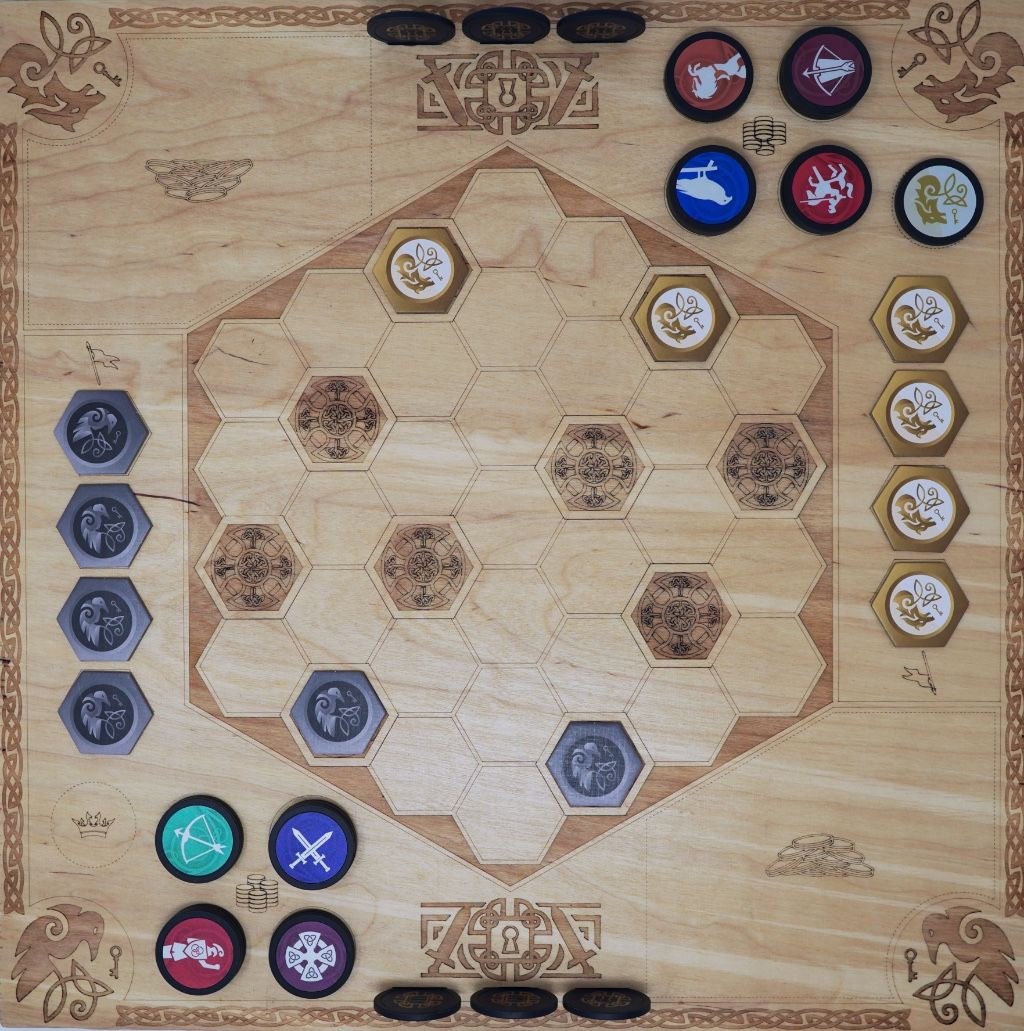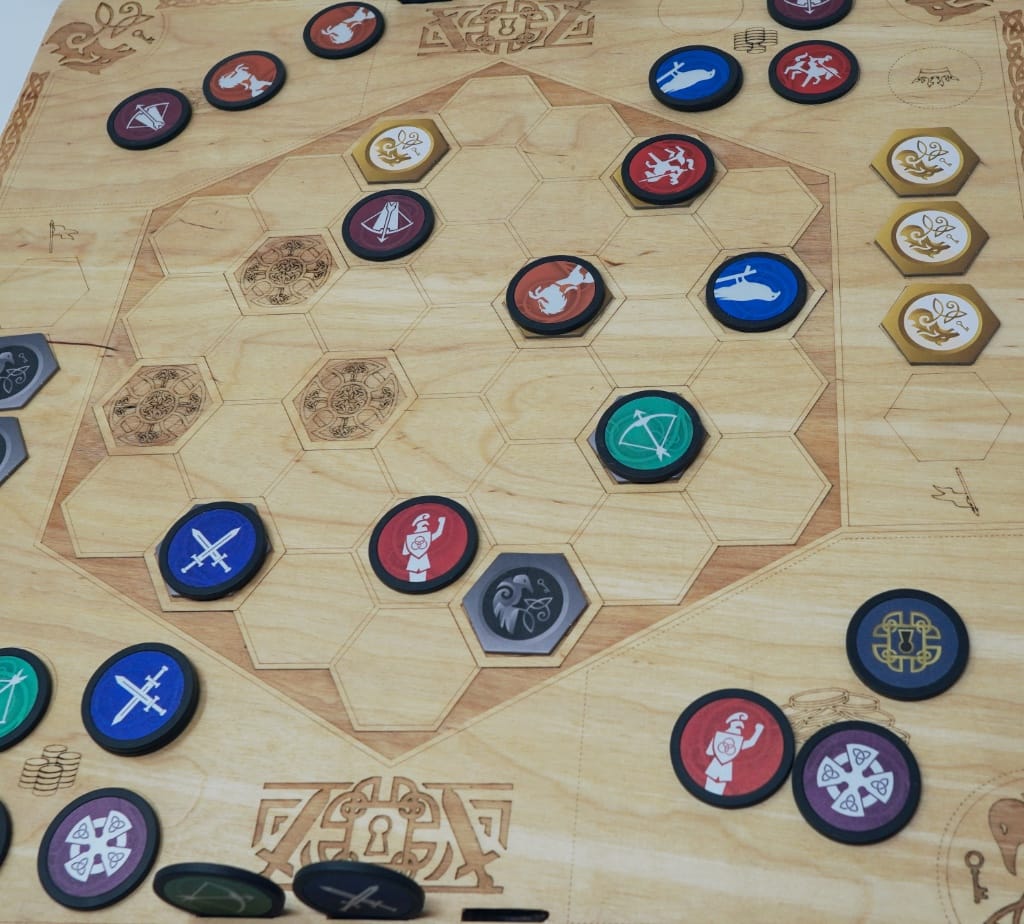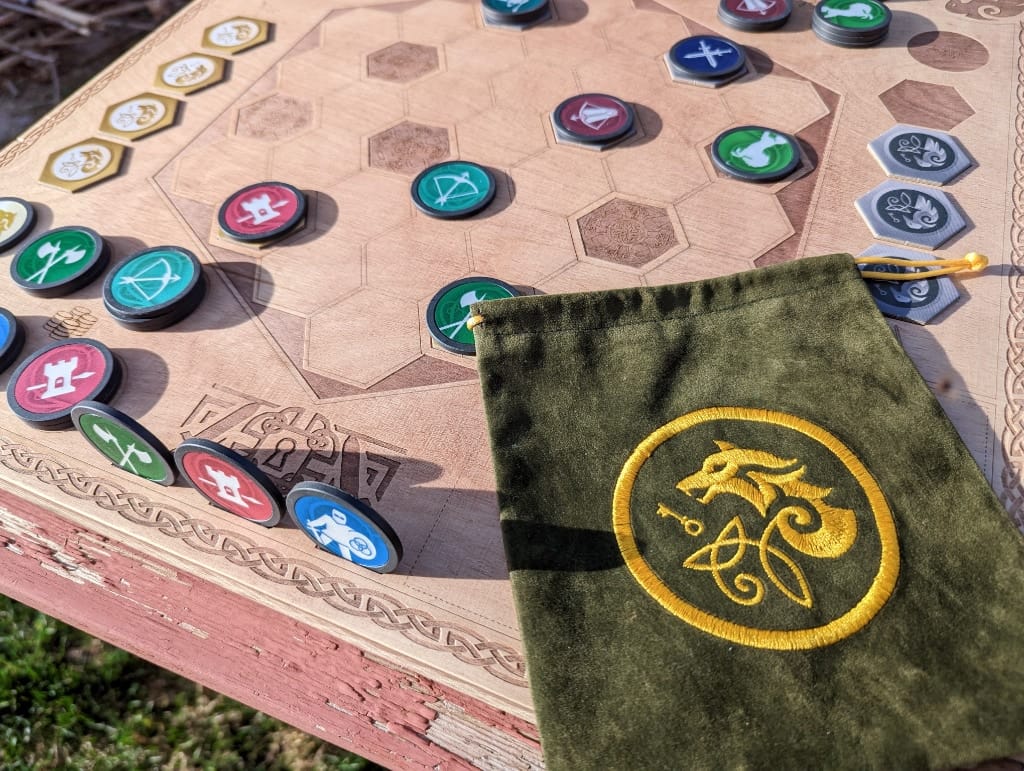War Chest is basically chess for the 21st century. It's an abstract strategy game played on a hexagonal board. The "armies" are asymmetric, which means you don't have the same units as your opponent. And you don't have the same units every game, either: The game comes with a whole bunch of units, and each side picks just four units for each game. There's also an element of luck.

In terms of components, you get a board and a bunch of cards (one card per unit type, explaining how the unit works). But the best components are the actual unit "coins". These are hefty and well-made. You interact with these all the time as you play, so this makes a difference.
The actual board the game comes with is the weakest part, but I got lucky in this department as the friend I play with created his own beautiful wooden board. So much better.

Because each unit type has a card, you can start the game by shuffling the cards and doing an "elimination draft" where each side eliminates a unit and then you take turns picking which units you'll play with. You can also just randomly give each player four cards, or you can play with "set armies" where each player has a known array of units. I played with two set armies for months before branching out into elimination drafts.

Units can move, attack, or capture bases. You win the game by capturing six bases, but you also need to defend any bases you already captured, as well as defend your own pieces.
With chess and similar games, the board can be quite full. With War Chest, the board is often relatively empty — there are maybe five or six units at any given time. This makes it easier to read the board and plan ahead, but is balanced by an element of luck: bag building and bag draws.

On each turn, you only have a "hand" of three units to work with. You play one, your opponent plays one, etc. — until you're all played out, and then it's time to draw new units from your bag into play.
This is where luck comes in, as you stick your hand in your bag, shuffle it, and pull out three random coins. Just how random they are depends on how full your bag is: There are ways to play which result in a very "heavy" bag, while other approaches can yield a bag that has just a handful of coins in it, reducing randomness and making for a very strong game.
What makes War Chest so compelling is the tension between skill and luck, the variety from game to game due to the different units, and the way you have to split your attention between occupying new territory on the board, defending your units, monitoring your own bag and unit reserve, and analyzing your opponent's resources.
When I describe it like that, it sounds overwhelming — but the whole thing is just so elegantly packaged. The rules take just a few minutes to understand.
There's also an unofficial online version ("War Chest Online") which is entirely free and ad-free, and has a lovely community. It's a good way to try the game out.
The Surprise
I recommended War Chest in a past issue of our newsletter, after several months of play. I haven't stopped playing it since. It's been well over a year now, and I don't see myself stopping anytime soon, as long as I have a partner to play with.
So to me, the big surprise is War Chest's longevity and depth. I'm not even a very good player, and it still makes for years of compelling and rewarding gameplay that doesn't get old.


